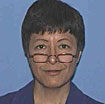When I was a beginning preacher, a friend gave me some blunt advice:
“Don’t preach the same message every time,” she said. “I don’t want to always know what you are going to say before you even start. Surprise me.”
She was reacting against sermons that all had the same message–no matter what. Her plea was not merely for vanilla, chocolate and strawberry flavored sermons. She wanted something more than variety. She was asking for God’s Word to speak to her life. And in her life, the admonition to “remember your baptism” or the commonplace “you don’t have to do anything” had become meaningless.
Put another way, my friend was not living in the same theological world as the preacher.
Her deepest needs were not about sin and forgiveness, and works righteousness was not her problem. But the preacher worked out of the theological world of sin and forgiveness to the point where all his sermons sounded the same. Meanwhile, my friend suffered from separation and loss, and her need was not being addressed, even though the Gospel offers reconciliation and abundant life.
Preachers want to build up the body of Christ with the Word of God. We want to stay firmly grounded in Scripture and also reach people where they live. But what if where they live is different than where we live, or where we were taught in seminary that people should be living?
The fact is people in our congregations are living in different theological worlds than the preacher, and in any given congregation, people are living in multiple theological worlds all at once. That’s why preaching needs to have enough range to reach people and enough depth to offer the transforming grace of God.
This point came home to me one day when my family and I visited an inner city church that was racially mixed and included middle class and poor people.
Not a peep was said about baptism. And instead of being told that “you don’t have to do anything,” the people were being empowered to go out and make a difference in the neighborhood. The sermon was about running the race set before us. The music was about victory. The prayers and announcements were about community action and spiritual conversion. We left that worship service refreshed.
That church, although so different than what we were used to, was militantly Christian. The congregation lived and did ministry in a different theological world. Theirs was a world of suffering and endurance, of conflict and vindication. Ours was a world of sin and forgiveness. I wondered what would happen if we could swap sermons and preachers. Probably everyone would benefit.
Preachers who want to avoid giving the same message time after time and want to surprise people with the Word of God will do well to ask themselves: what theological world am I living in? Do I always preach out of the same theological world, or could I work from another one and do a better job for my people?
Pastors who ask these questions can expand their range as preachers by reading a little book by W. Paul Jones, called Theological Worlds: Understanding the Alternative Rhythms of Christian Belief.
This is not a new book (it came out in 1989), and it is not specifically about preaching. But it can help preachers to recognize what theological world they live in, and to begin to address people who might be living with questions and issues different from their own. For example, most Lutheran pastors I know are trained to think and live in the “Condemnation and Forgiveness” world, in which guilt and sin are the main problems and forgiveness is offered by Jesus as Savior.
Well and good. But what about people for whom Suffering and Endurance is uppermost? They need to hear Jesus proclaimed as Companion who helps them survive with integrity, or as Physician who heals.
Or what about people who are troubled by separation or estrangement from God or loved ones? Their deepest need is for reconciliation or homecoming.
Then again, there are those for whom injustice is the main problem of their lives, and they need hope, self worth, and vindication in Christ.
To be sure, these theological worlds connect, like rooms in one house. But the preacher needs to move from room to room, to let the scriptures speak to people where they live. If the preacher only feeds those who live in the same room, (among the folks I know, that is the room of Sin and Forgiveness) then the people living in the other rooms don’t get fed. And the preacher doesn’t grow.
There’s much more to Jones’ Theological Worlds than I’ve sketched here. But I’m convinced that every preacher can become a better preacher by reading Jones’ book.
First, it will help you identify which theological world you inhabit, (and you may have more than one).
Second, it will help you preach to those living in a different room than yours, asking different questions, bringing different spiritual or existential needs to God.
In the next two articles I will explore some of the theological worlds and how these can enhance our preaching on specific texts. See you down the hall!

